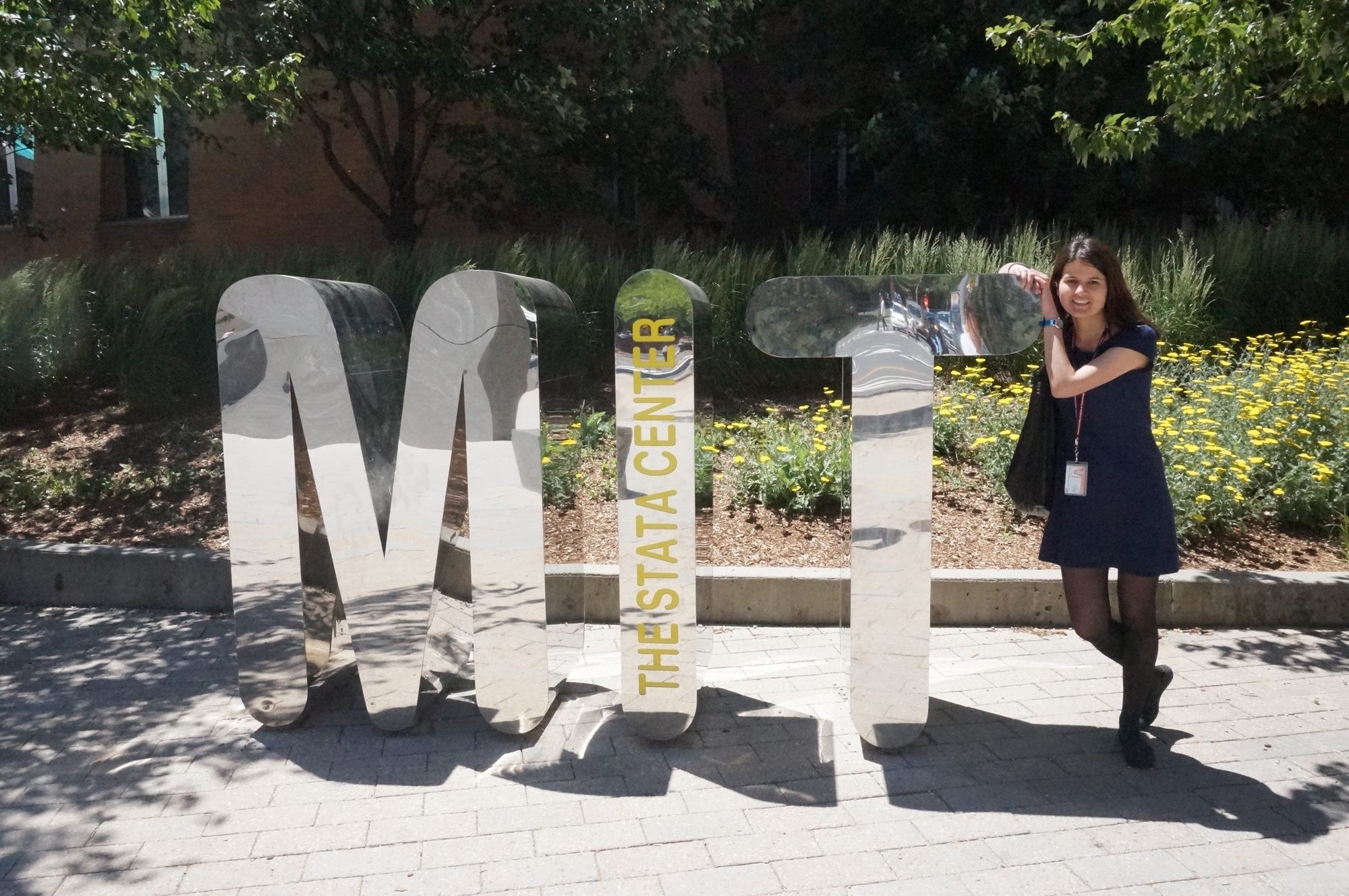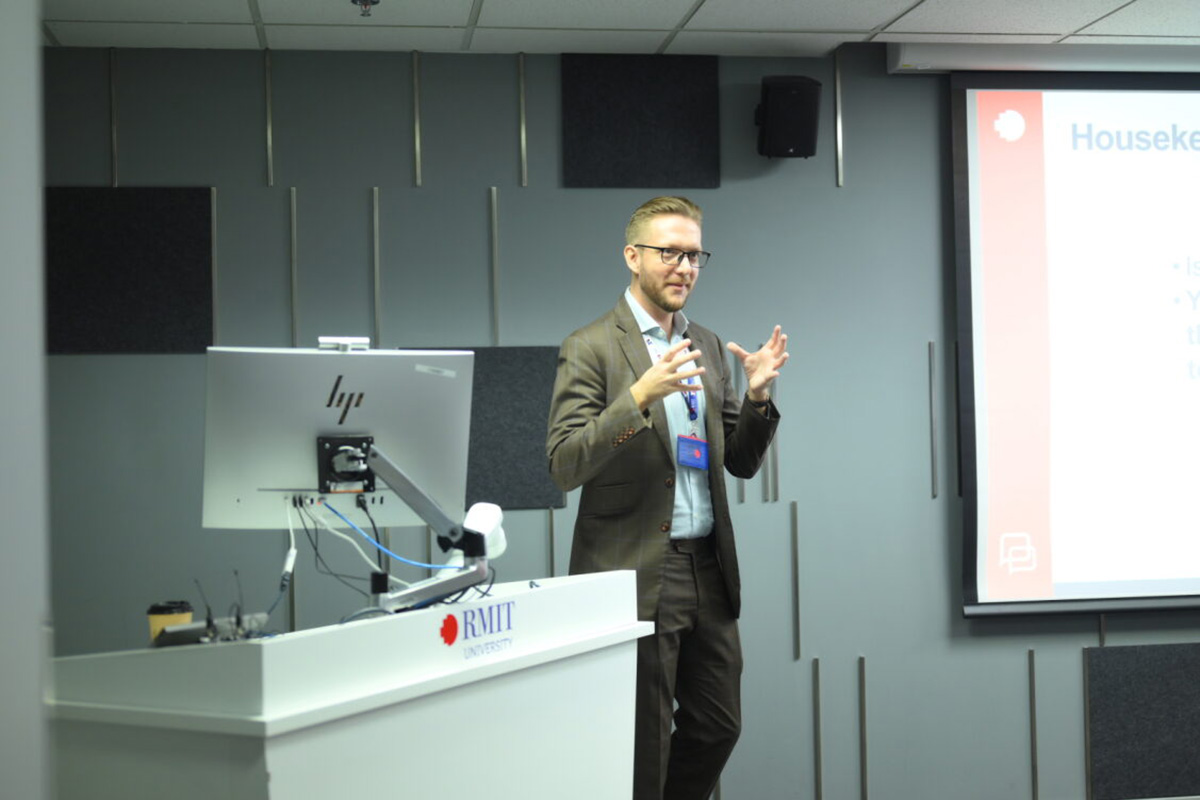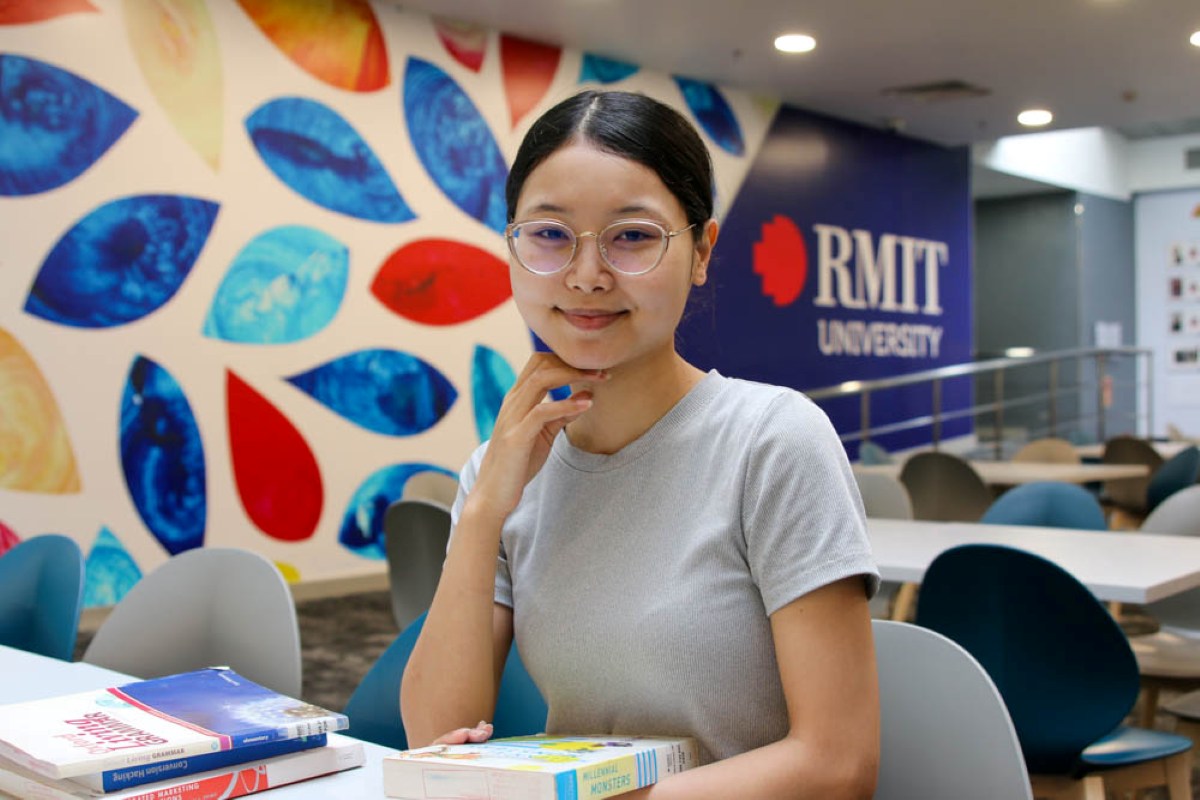Ksenia said people generally thought she was stupid.
“And I thought I was totally stupid. My teachers told me I was dumb.”
But Ksenia coped and persevered in the face of hardship and negativity, a theme that would carry through to adulthood.
Not being able to read or write, she focused on math.
“I have a bad short term memory, but I can get to anything logically,” she said.
She developed her own methods of study and won a scholarship to a Russian State Agrarian University where she fulfilled her childhood dream of studying biology.
“One of my professors told me I didn't belong there,” Ksenia recollected.
“I had a math background, and I didn’t know the most basic things about biology.
“I was struggling to remember cell biology so she advised me to quit.”
Again Ksenia adapted her study habits, visualising movies of biological processes instead of memorising facts. She passed, and then came to RMIT Vietnam to raise her IELTS score through the Academic English Program before pursuing an MA in Europe.
At RMIT Vietnam, for the first time ever, Ksenia disclosed her difficulties to her teacher Carol Witney.
“Carol was the first person I really told about this,” said Ksenia, adding “I trusted her.”
Carol Witney, now the Coordinator for the University’s Equity and Disability Resource Centre, recalls observing a discrepancy between Ksenia’s speaking and listening, and her reading and writing skills.
“We sat down together to try and work out what was going on for her,” Carol said.
“Together we did an online test and read all the literature we could find regarding dyslexic characteristics.
“Ksenia matched hers up [to the online descriptions] and we finally worked out her dyslexic profile – like putting together a puzzle.”
The realisation that she was dyslexic allowed Ksenia to adopt specific strategies for the IELTs test.
“Carol suggested I draw the edges around the text so the words would not disappear,” Ksenia explained.
“I was given 20 per cent extra time for reading and was permitted to do the writing on my computer.
“After I got all the strategies I scored 9 on reading. Unbelievable right? Me!”
This year RMIT Vietnam launched RMIT Access, an institution-wide initiative that provides equitable access to learning materials.
“Everyone has the right to learn and learn according to their own style,” Carol said.
“With the right classroom adjustments and equitable assessment arrangements, I have watched students go from NN [fail] to scoring HD's [high distinction] in the following semester.”
For Ksenia, who’s now finishing her Master’s thesis in Digital Biology at the University of Manchester, discovering she has dyslexia changed everything.
“It literally changed my life 180 degrees,” she said.
“When you have a weakness you think you’re not as good as others. But it’s not a weakness, it's a difference, and in many ways that difference is a strength.”





